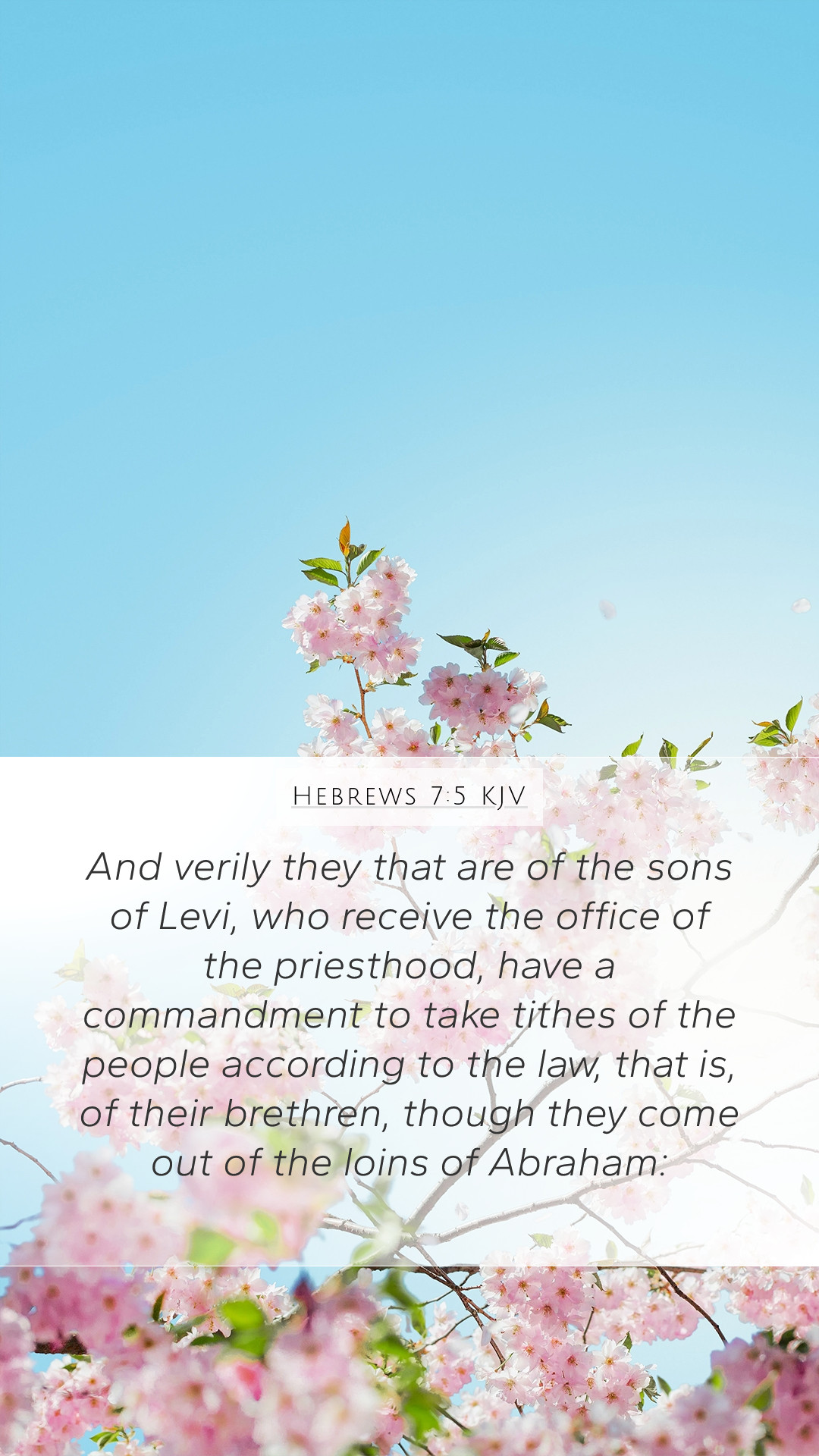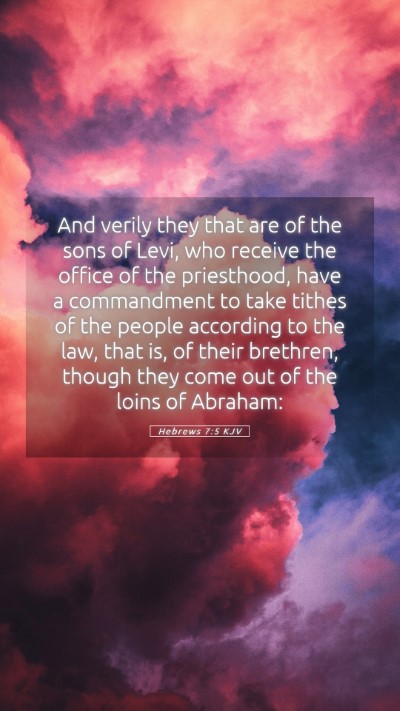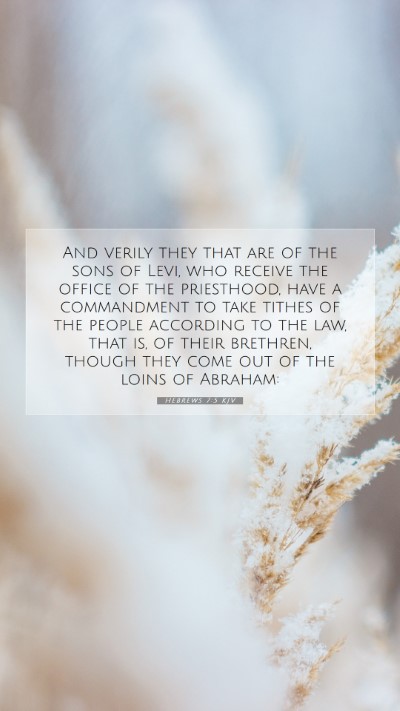Bible Verse Commentary on Hebrews 7:5
Hebrews 7:5 states: "The Levites, who receive the priesthood, have a commandment to take tithes from the people, that is, from their brethren, though they have come from the loins of Abraham." This verse plays a pivotal role in understanding the distinction between the Levitical priesthood and the priesthood of Jesus Christ.
Overview of the Verse
This passage highlights the Levitical priesthood's established authority to receive tithes from the Israelite community. This not only served as a reminder of God's provision but also reinforced the Levites’ role in mediating between God and the people.
Meaning and Significance
- Authority of the Levites: The Levitical priests were chosen by God to oversee the sacrificial system and ensure the religious observances were correctly performed.
- Connection to Abraham: The reference to the loins of Abraham signifies the heritage and continuity of God's chosen people, aligning with the narrative of covenant established with Abraham.
- Tithing as a Divine Command: This verse emphasizes the importance of tithing—acknowledging God's provision and the Levites' role as intermediaries.
Insights from Commentaries
Matthew Henry: He elaborates on the idea that the Levitical priesthood was established as part of the Mosaic law and had both a spiritual and material basis. The requirement of tithes from the people underscores a communal obligation to support God's servants, reflecting a broader principle of stewardship.
Albert Barnes: Barnes points out that the text illustrates the legal right of the priests to collect tithes, showcasing their appointed role in handling the affairs of the covenant community. He emphasizes that this practice was normative and foundational within the Israelite society of the time.
Adam Clarke: Clarke connects this verse to the broader themes of sacrifice and priestly duty, noting that the tithing system ensured that the Levites had a means of support while they dedicated their lives to service. He underscores that this levitical system was a precursor to a more profound spiritual ministry represented by Christ.
Applications for Today
- Understanding Biblical Stewardship: This passage invites modern believers to consider their own responsibilities in terms of supporting spiritual leaders and ministries today.
- Covenant Relationship: It deepens our understanding of the covenant relationship God established with Israel and how this relates to the Christian faith, exploring themes of faithfulness and community.
- Christ as Our High Priest: The verse sets the stage for understanding Christ’s priestly role, allowing the faithful to consider how His ministry as High Priest surpasses that of the Levites.
Related Bible Cross References
- Numbers 18:21-24: Describes the Levitical duty concerning tithes.
- Deuteronomy 14:22-29: Discusses the regulations surrounding tithing.
- Hebrews 7:1-10: Expounds on the priestly order of Melchizedek compared to the Levitical priests.
Conclusion
Hebrews 7:5 provides rich insights into the structure of the Levitical priesthood and its significance in biblical history. Through various public domain commentaries, we gain a multi-faceted understanding of this scripture, which not only informs our knowledge of the Old Testament but also enhances our understanding of Christ's role as the ultimate High Priest. This verse serves as a foundation for deeper exploration in bible study groups, online bible study, and personal reflections.
Further Study Recommendations
For those seeking to dive deeper into the meaning of Bible verses like Hebrews 7:5, consider utilizing bible study tools and resources that facilitate online bible study or group discussions. Engaging with various bible study lessons will enhance your understanding of Scripture and its applications to daily life.


